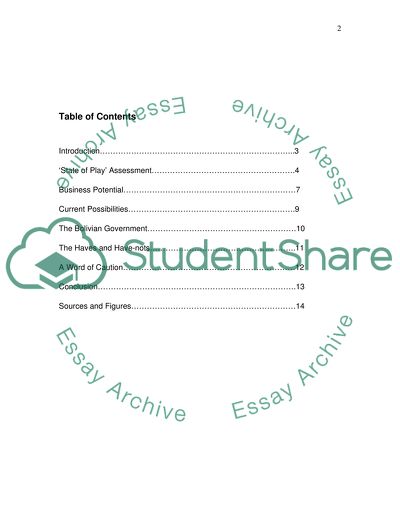Cite this document
(“A'state of play' assessment of the investment climate in Bolivia Essay”, n.d.)
Retrieved from https://studentshare.org/miscellaneous/1529491-astate-of-play-assessment-of-the-investment-climate-in-bolivia
Retrieved from https://studentshare.org/miscellaneous/1529491-astate-of-play-assessment-of-the-investment-climate-in-bolivia
(A'state of play' Assessment of the Investment Climate in Bolivia Essay)
https://studentshare.org/miscellaneous/1529491-astate-of-play-assessment-of-the-investment-climate-in-bolivia.
https://studentshare.org/miscellaneous/1529491-astate-of-play-assessment-of-the-investment-climate-in-bolivia.
“A'state of play' Assessment of the Investment Climate in Bolivia Essay”, n.d. https://studentshare.org/miscellaneous/1529491-astate-of-play-assessment-of-the-investment-climate-in-bolivia.


